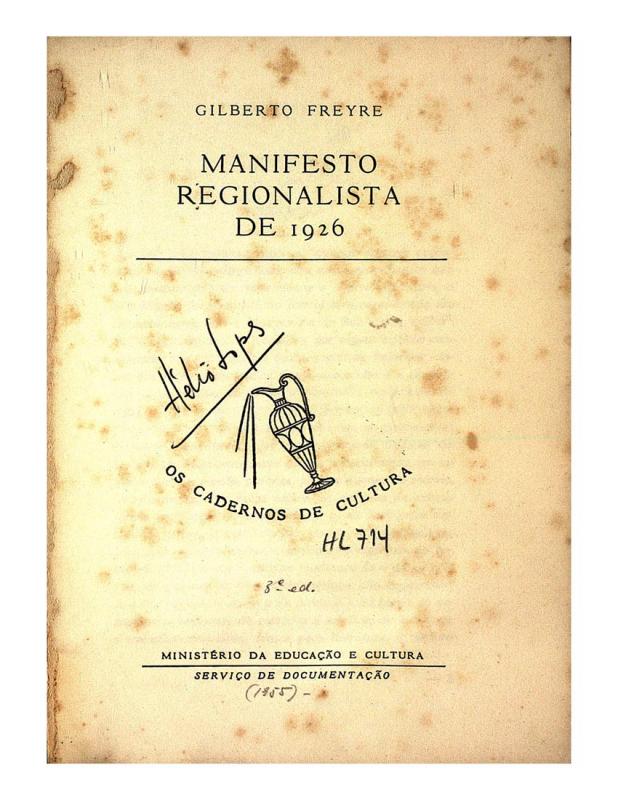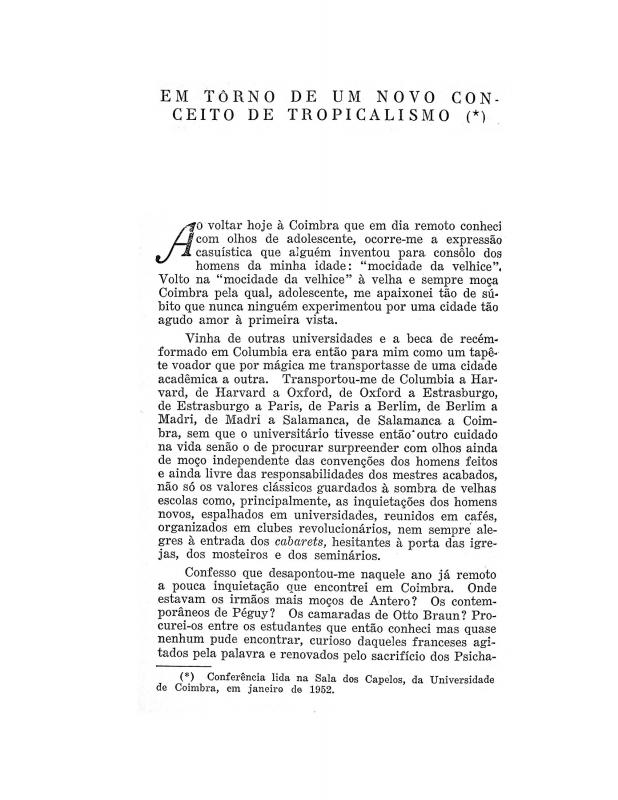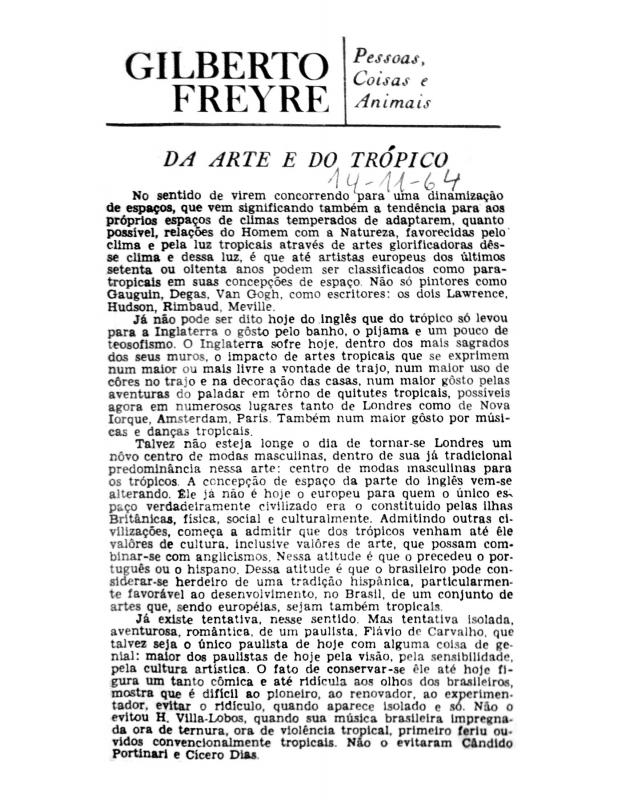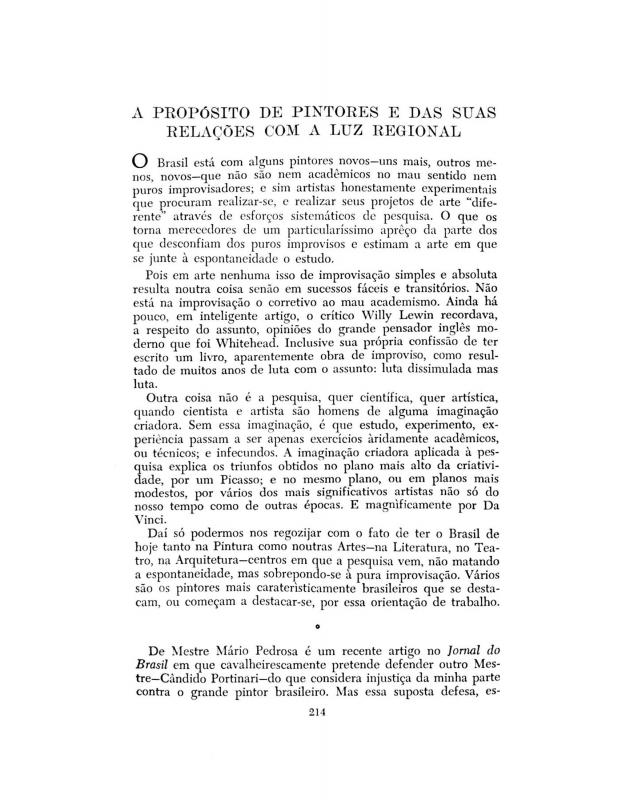Gilberto [de Mello] Freyre (1900−87) worked as a sociologist, anthropologist, historian, writer, and journalist. From the start, he was highly conscious of the great geographic and cultural distances that separated his region from the political and economic centers, Rio de Janeiro and São Paulo. As early as 1926, he proposed for his city, Recife, the “Primeiro Congresso Regionalista do Nordeste” (see the manifesto in [doc. no. 1074787]). This was an event that defended aspects of the culture and customs of his region (northeastern Brazil). And this was therefore the origin of his desire to offer suggestions for a new concept of “tropicalism,” which he had the opportunity to return to decades later in a lecture at the Faculdade de Letras de Coimbra (Portugal). He points out the pejorative meanings so often attributed to the term, used to designate qualities of crassness, disorder, coarseness, and primitivism, in open opposition to the idea of “civilization” claimed by a refined Europe (see “Em tôrno de um novo conceito de tropicalismo” [doc. no. 1075041]). That is how Freyre came to propose certain interpretations of man, objects, and tropical landscapes, going beyond ethnographic curiosities, the picturesque, and the exotic. In another text in which the writer places a priority on the regional value of the painting (strictly tropical), “Da arte e do trópico” [doc. no. 1075251], the example Freyre uses is the work of Flávio de Carvalho. Regarding the way painters relate to tropical light, he speaks up in defense of Candido Portinari [doc. no. 1075199].
This article is undoubtedly an offshoot of an article written by Freyre under the title “Nominalismo, artes plásticas e tropico” [doc. no. 1075317]. In the current article, the writer demands that Brazil be understood abroad as a “tropical complex.” Freyre postulates that the composer Heitor Villa-Lobos (1887−1959), whose music was inspired by Brazilian folklore, took that concept to the point of reflecting what the German philosopher Wilhelm Dilthey considered “the power of reconstruction [of reality] through the imagination.” In Freyre’s opinion, the Portuguese were particularly predisposed to experience the development of the empirical knowledge that revolved around tropical diversity. They even took a stance against any idea of aesthetic universalism, giving in to the attraction exercised on them by the tropics.





